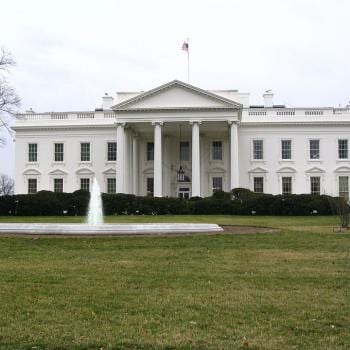When it comes to Supreme Court vacancies and abortion, there are two things to remember. First, not all vacancies are created equal. There are currently five clear pro-Roe votes on the Supreme Court (Stevens, Breyer, Ginsburg, Souter, and Kennedy), two clear anti-Roe votes (Scalia and Thomas), and two votes that are probably but not definitively anti-Roe (Roberts and Alito). To get an anti-Roe majority on the Court, it’s not sufficient for a President to appoint an anti-Roe justice. It must also be the case that the justice this anti-Roe justice is replacing is one of the five pro-Roe justices currently on the Court. So, for example, if Justice Scalia were to step down and the President were to appoint Judge Pryor (who is about as close to a certain anti-Roe vote as one could imagine) to replace him, this wouldn’t change the vote should a case reach the Supreme Court in which Roe was challenged. That doesn’t mean that a Supreme Court vacancy isn’t important if the justice being replaced is anti-Roe. Should a pro-Roe justice be appointed to replace an anti-Roe justice, this would make achieving an anti-Roe majority on the Court that much more difficult. Likewise, if a pro-Roe justice were to be replaced by another pro-Roe justice, this wouldn’t necessarily change the vote in any case involving Roe, but it would take that seat “off the table” in terms of building an anti-Roe majority for the next 30 years or so until that new pro-Roe justice got ready to retire.
The other important thing to note about Supreme Court vacancies is that they are not random events. A vacancy can occur because a given justice dies or is too ill to continue his service, or it can occur because the justice in question decides to retire. And whether a justice decides to retire at any given point will depend, in part, on whether he thinks he will be replaced on the Court by someone who broadly shares his views on the law. The more liberal a justice is, the less likely he will be to retire during a Republican administration (if he can help it). The more conservative a justice is, the less likely he will be to retire during a Democratic administration.
Keeping these two points in mind, what are the likely vacancies during an Obama versus a McCain administration?
If Obama is President, he will almost certainly get to pick Justice Steven’s replacement. Stevens, while currently in good health, is 88 years old. He is also one of the most liberal members of the Court. If Obama is elected in 2008, and Stevens did not retire during his first term, he would risk having to stay on the Court until he was 100 in order to make sure he was appointed by a Democrat. A President Obama would also likely get to appoint the replacement of Justice Ginsburg, who is now 75 and has had some health problems in the past. He would probably not get to appoint replacements for Justices Stephen Breyer (70) or David Souter (69), at least not in his first term. And he would almost certainly not get to appoint replacements for any of the four conservative members of the Court (Scalia, 72; Thomas 60, Alito, 58, Roberts, 53) all of whom are relatively young, in good health, Nor would he probably get to appoint the replacement of Justice Kennedy (72), who seems to be enjoying his role as the Court’s swing vote, and in any event would probably prefer to have a Republican President pick his successor.
If McCain were to become President, on the other hand, he would be able to appoint replacements for Stevens, Ginsburg, Breyer, or Souter only if they were physically unable to perform the duties of the office. Given the age of Stevens, and Ginsburg’s age and health problems, this is not a possibility that can simply be dismissed (it’s hard not to sound rather ghoulish when contemplating such things, but such is the nature of the Supreme Court appointment process). As for the other five, Roberts, Thomas, and Alito are young and spry enough that it’s unlikely they will be going anywhere anytime soon, and both Scalia and Kennedy seem to be having too much fun to want to pack it in (Scalia might want to retire if it looks like a Democrat is going to win in 2012; on the other hand, he probably isn’t too eager to have his replacement chosen by Mr. Campaign-Finance Reform).
The basic outlook, then, seems to be this: If Obama is elected President, he will almost certainly get to appoint at least one and quite probably two Justices to the Supreme Court. These Justices will replace Justices who are pro-Roe, and in so doing will shore up the currently fragile pro-Roe majority on the Court, but in terms of the end result will not move the Court appreciably to the left (on abortion or any other issue). If McCain is President, he has a good chance of getting to appoint at least one pro-Roe Justice (Stevens or Ginsburg, plus possibly Kennedy), and may get to replace the one anti-Roe Justice who is not likely to remain on the Court for decades to come.
All this raises the question of what kind of Justices McCain and Obama would be likely to appoint as President. However, since this post is far too long already, I will leave off consideration of this point for a future installment.











